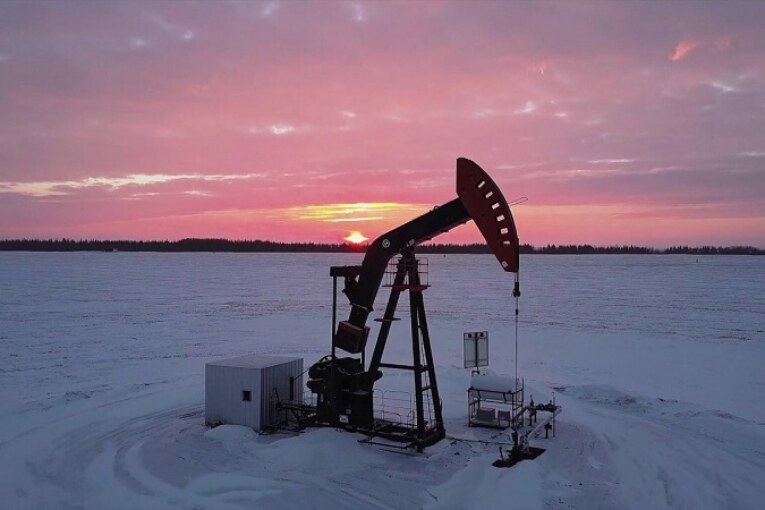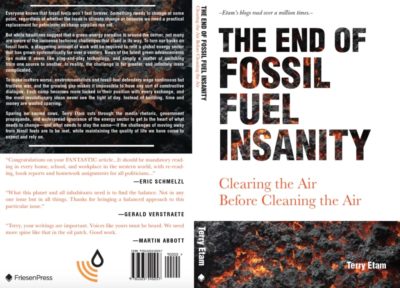
Happy New Year all, though 2023 is well underway. Type A’s have buttoned down 2023’s goals and are doubtlessly already pursuing them with a vengeance. (Us) Type B’s are now wandering aimlessly around gyms, rationalizing abandoned resolutions, and annoying the regulars by dozing off on the equipment.
In the energy world, resolutions take a back seat to predictions. Everyone makes them, which is fine – it’s always good to hear others’ thoughts, but the pseudo-precision and forcefulness can get kind of demented. A quick Google search of “2023 energy predictions” yields – Forbes (the business crowd is always bold): “8 Consequential Energy predictions for 2023.”
Wood Mackenzie (global consulting firms put food on table/Ferraris in garage by projecting an aura of well-groomed omniscience): “Ten Predictions for 2023.” The Motley Fool (investing website): “3 Bold Oil Market Predictions for 2023.” Gizmodo (pop-culture site with motto ‘Tech.Science.Culture’ and therefore sure to be pop-culture-deep energy thinkers): “The Year Ahead in Energy – In 2023 we will see the first real movement in a global energy transition.” Tell us all about it, culture writer. And sidestep entirely the fact that oil, gas and coal are all at record consumption levels.
The clickbait headlines didn’t draw me in except ironically Gizmodo’s – their predictable high-intensity/low-knowledge attack on hydrocarbons is of more interest than most because it aligns with western political thinking. Clueless they may be, but we need to pay attention to these bollards. You may be in an auditorium with a hundred towering intellects, but you’ll devote your entire attention to one single idiot if he has a bomb strapped to his head.
The hydrocarbon haters ironically provide the most clues to the future because they write what legislators enact – a terrifying thought, but true (more on that in a second).
As for the real energy world, I have no freaking idea what will happen.
Some things seem likely – apparently Russia will continue to Russia, blazing a head-scratching path of murderous yet bungling destruction (they are apparently ‘staffing up’ the troops by another half-million reluctant sacrificial lambs), hell-bent on something that makes sense in their brains but no one else’s. The whole war is almost unimaginable as if the internet’s craziest person was handed an army.
Russia could have used the money spent destroying Ukraine to build an impenetrable wall and saved hundreds of thousands of lives and endless misery, but chickens don’t write novels either.
Energy-wise, the invasion was forecast to upend global energy markets like nothing else. A year ago there were many predictions about how many million barrels per day of Russian oil would be lost from world markets, because who would want to trade with that.
Turns out plenty of people would – Russian oil production, after a brief decline in spring 2022, ended the year at similar production levels to 2021. Russia shut in a gas pipeline to Europe (Nordstream 1) as a bargaining chip, whereupon then someone mysteriously blew it up real good (still miss you SCTV). Those events were supposed to be even more cataclysmic – I surely thought so – but then weird things happened like Germany building an LNG terminal in 5 months. Did not see that coming.
China stuck to a bizarre zero-Covid policy far longer than anyone imagined, including communist party leadership that seemed more than a little rattled when the well-controlled population started torching detention camps and hurtling barricades. Limit found.
Now China is reopening at a dizzying pace, which should impact hydrocarbon demand, unless something else of significance happens, which seems more likely than not. At least that is what forward commodity prices are saying, with both oil and gas prices showing significant weakness recently.
Late in 2021, Europe was headed for a natural gas crisis – long before Putin’s invasion – due to a shortage of available supply, which was theoretically to be one of the big stories of 2022. However, the EU decided it loved natural gas after all and snapped into action, purchasing any and all LNG available (Japan says LNG is sold out until 2026), and unrolling a cool trillion of new fossil fuel subsidies (gotta love the irony) to keep their own citizens from rioting.
Germany must have set some sort of record in constructing an LNG import facility in five months in what will go down in history as the moment a “rapid energy transition” was shown to be the utter farce that every serious/knowledgable person in the business knew it would be.
Speaking of farces, a recent holiday had me in one of those places where one caps off a useless but relaxing day with a bit of TV, and the TV choices were BBC, Fox News, or CNN/MSNBC. Fox, CNN and MSNBC were horrible; flipping around them was like a conversation with a divorcing couple that loathes each other, so over to BBC in hopes of something a bit more cerebral where I found – a year-end interview with Greta Thunberg herself.
Well, it beats listening to the Bickersons; it’s always good to hear counterpoints to one’s own thinking. Who knows, maybe I’d missed something pertinent and frame-shifting.
Nope. To the contrary; my initial reaction was of perplexity, that an airhead like that had been thrust out as a global icon of hope. The BBC interviewer himself was at times perplexed when Greta would respond to a typical climate policy question with fits of giggles that had her doubled over for uncomfortably long periods of time (at several points the interviewer earnestly asks how such a question could possibly elicit uncontrollable laughter, to which he gets no useful response).
Greta also deflected every possible policy question – the interviewer, originally from India, asks if it is wrong for his mother to fly over to see him; Greta replies “Of course not, people should do what they want.” (Huh? Like drive a gasoline car?). The interviewer presses her to either support or condemn nuclear (she refuses, because if she was to take a side, “people would focus on that and not the climate emergency” (yet another Huh?).
But as I was watching the interview wrap up, any derision was replaced by clarified pity. Greta is just a kid. A kid who has been terrified by the adults around her, so terrified that she made it her life’s mission to fight against the demon her leaders have convinced her is living under her bed.
The interview left me with a queasy feeling of injustice towards Greta, a youth who is/was genuinely terrified for the future, and who had that fear weaponized as a cornerstone of a global activist marketing strategy.
The only reason for bringing up the interview is because of the direct connection with the Gizmodo article, which directly connects with the current brainless policies we see our leadership announce. The most prominent and clear example (among many candidates) was the Trudeau announcement that there was no business case to send Canadian LNG to Germany and that Canada would help their desperate Teutonic friend by supplying, ta da, green hydrogen. (Shortly after, Germany signed an LNG supply deal with Mexico, a country that doesn’t even have enough gas to export, but is wily enough to channel US/Canadian natural gas onto ships via Mexican ports and pipelines), The Trudeau proposal was stunning in its brazen and heartless stupidity; it would take all three levels of Canadian government a decade to work out the regulatory framework and challenges of any green hydrogen production; there is no current mechanism or infrastructure to transport hydrogen to Germany; and Germany has the same tools as Canada anyways, possibly more so – lots of renewables, water, and a motivated workforce (our government’s rationale for why it makes so much more sense for Canada to develop an entire new industry that currently exists nowhere on earth rather than build pipe and LNG export terminals).
The inanity of Germany’s visit/rebuff is unfortunately and shockingly the best guidepost for what 2023 might bring. Major energy policy decisions are being made in a void of common sense and relevant expertise.
The world is in an energy crisis – global demand for natural gas, oil, and coal are at all-time highs, the industry remains an investment pariah in many circles, and poor countries cannot compete with rich ones for the fuels of their choice – and yet western leadership has their foot flat to the energy transition floor even though the steering wheel has come off in their hands. It’s fine to fund the development of new technologies, but, critically, as a supplement/advancement to/of the current energy system, not a replacement.
I’d thought an actual energy crisis would break the spell that western leadership is under, but apparently not – not until it lands forcefully at home.
Here in North America, particularly with natural gas, consumers and industry are benefitting massively (and producers suffering) from an inability to sell our natural gas at global prices. North America, therefore, is currently enjoying a somewhat artificial advantage over the rest of the world.
With proper infrastructure, North America could go a long way to meeting global LNG needs, and NA producers would see a price strong enough to incentivize development but yet lower than global prices (unless LNG terminals spring up like dandelions). Furthermore, NA producers are proceeding with emissions reduction schemes at a blistering pace – both the US and Canada will, within a few years, see the backbones of carbon sequestration hubs arise in industrial heartlands from the Gulf of Mexico to Fort McMurray. The pace of these developments is dizzying, considering the challenges of new infrastructure construction. But that is why any “energy transition” has to start with the full weight of the hydrocarbon sector behind it and integrated with it – because that sector consists of trillions worth of infrastructure already in place. Remember the “reuse” in “reduce, reuse, recycle”, people…
The lack of affordable energy is a wrecking ball that will demolish economies anywhere the impact is felt. Warm weather brings reprieve, for a while; Europe looks now to be fine for natural gas for the winter. Problem solved!
I look forward to 2023 with morbid fascination, as the unyielding forces of reality rain mighty blows upon the heads of what history will show as the world’s worst-ever energy architects. I guess that’s a prediction…but I’ll stick by it; it’s hard to envision a more likely pathway.
Help energy peace break out. Pick up and distribute “The End of Fossil Fuel Insanity” at Amazon.ca, Indigo.ca, or Amazon.com. Thanks!
Read more insightful analysis from Terry Etam here, or email Terry here.
You can read more of the news on source



